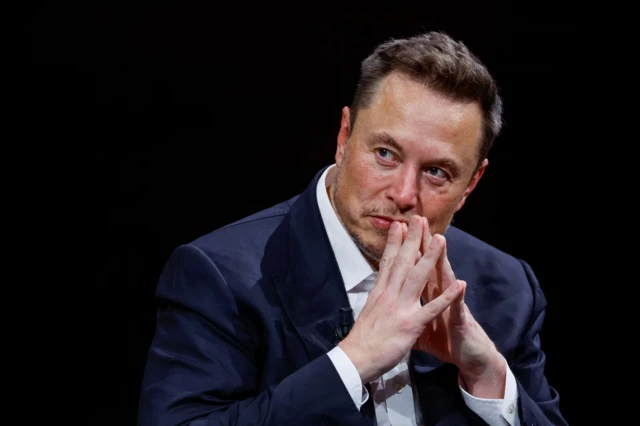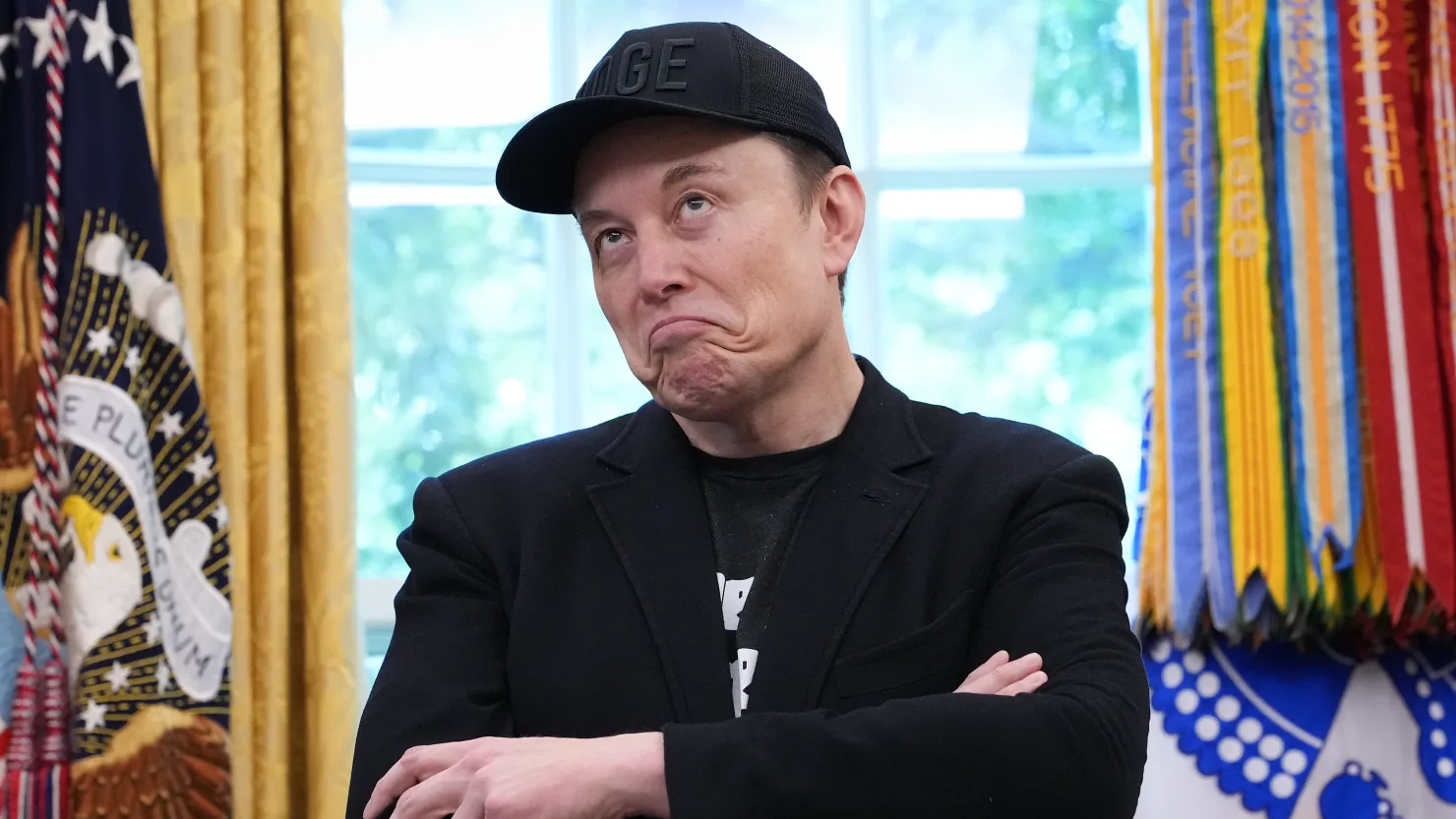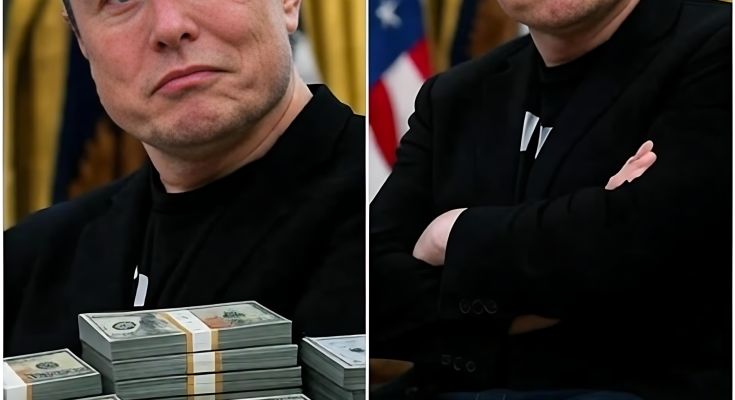On July 25, 2025, the financial world was rocked by the news that Elon Musk, the billionaire entrepreneur and CEO of Tesla, SpaceX, and xAI, suffered a staggering $90 million loss in personal wealth in a single day, sending shockwaves through investor communities and sparking intense speculation about the future of his empire. The dramatic drop, one of the largest single-day wealth losses in recent history, was primarily driven by a sharp decline in Tesla’s stock price, which plummeted 8% amid a confluence of political tensions, market volatility, and growing concerns over Musk’s divided attention. As investors reel from the fallout, the reasons behind this financial blow—ranging from Musk’s controversial political involvement to Tesla’s operational challenges—have raised critical questions about the sustainability of his ventures and the risks of tying a fortune so closely to one man’s public persona. This essay delves into the causes of Musk’s loss, its impact on investors, and the broader implications for his companies and the global market.
The catalyst for Musk’s $90 million loss was a tumultuous day for Tesla, the electric vehicle giant that accounts for the lion’s share of his wealth. On July 24, 2025, Tesla’s stock closed at $295.62, down 8% from the previous day, wiping out approximately $80 billion in market capitalization. This decline was triggered by a combination of factors, including a disappointing earnings report released that morning, which revealed a 10% year-over-year drop in vehicle deliveries, with significant declines in key markets like Germany (down 65%) and China (down 45%). Analysts pointed to increased competition from China’s BYD and other automakers, coupled with the looming expiration of federal electric vehicle (EV) tax credits, as major headwinds. Musk himself acknowledged the challenges in a post-earnings call, noting that “the loss of EV subsidies could impact margins,” a statement that spooked investors already wary of his political entanglements.

Musk’s role as head of the Department of Government Efficiency (DOGE), a position he assumed under President Donald Trump’s administration, has become a lightning rod for controversy. His vocal opposition to Trump’s proposed “Big Beautiful Bill,” a massive spending package, has strained his relationship with the administration, leading to threats from Trump to cut Tesla’s EV tax credits, worth an estimated $2.8 billion annually, and SpaceX’s government contracts, valued at $22 billion. These threats, amplified by Trump’s posts on Truth Social, sent Tesla’s stock into a tailspin, as investors feared the loss of critical subsidies that have bolstered the company’s growth. A financial analyst quoted by Axios warned, “Being on Trump’s bad side will not turn out well—especially when federal contracts and tax credits are involved,” highlighting the precariousness of Musk’s political gambit.
Adding fuel to the fire, Musk’s announcement of the America Party, a new political venture aimed at challenging the Beltway establishment, further unnerved investors. The formation of the party, unveiled just days before the stock drop, was seen as a distraction from Tesla’s operational challenges. Dan Ives of Wedbush Securities noted, “Musk diving deeper into politics is exactly the opposite direction that Tesla investors want him to take during this crucial period.” The sentiment was echoed across Wall Street, with Tesla’s net favorability dropping to 5%, near an all-time low, as eco-conscious consumers—once Tesla’s core base—began distancing themselves from the brand due to Musk’s alignment with controversial political figures. This shift has raised concerns about Tesla’s ability to maintain its market share, especially as rivals like BYD report 60% revenue growth in the same period Tesla’s sales faltered.

The ripple effects of Musk’s wealth loss extend beyond Tesla. SpaceX, valued at $350 billion, faced scrutiny after a recent Starship launch failure scattered debris across Florida, prompting regulatory reviews that could jeopardize future contracts. Meanwhile, X, Musk’s social media platform, suffered a major outage on July 24, attributed to a cyberattack, further eroding confidence in his ability to manage multiple enterprises. Posts on X captured the growing unease, with one user noting that Tesla’s stock “rose to $338 after earnings but dropped to $303 as Musk started babbling,” reflecting frustration with his public statements. Musk’s response, a defiant “It will be fine in the long term,” did little to reassure investors, who see his political and media distractions as a liability.
The broader implications of this event highlight the risks of Musk’s outsized influence on his companies. As Tesla’s largest shareholder, with a 12% stake, Musk’s personal wealth is inextricably linked to the company’s performance, making him vulnerable to market swings. His $424.7 billion fortune, while still the largest in the world, has shrunk by $132 billion since its peak of $486.4 billion in December 2024, a decline driven by Tesla’s 27% stock drop year-to-date. This volatility underscores the dangers of a CEO whose public persona—marked by erratic social media activity and political feuds—can overshadow corporate strategy. Investors are increasingly vocal about their “exhaustion” with Musk’s antics, with some, like Ross Gerber of Gerber Kawasaki, lamenting the “wealth destruction” tied to his decisions, such as the $24 billion loss in X’s value since its 2022 acquisition.

The football community, while not directly tied to Musk’s financial woes, offers a parallel in its response to high-profile tragedies, such as the recent plane crash that claimed Real Madrid’s Javier Torres. Just as fans rallied around Torres’s memory, Musk’s supporters on X have defended him, arguing that his long-term vision will prevail. However, the skepticism among investors reflects a broader shift, with analysts like Jacob Falkencrone of Saxo Bank warning that “Tesla’s biggest challenge in 2025 isn’t technology—it’s perception.” Musk’s political baggage, from his $270 million donation to Trump’s campaign to his DOGE role, has alienated key demographics, complicating Tesla’s recovery.
In conclusion, Elon Musk’s $90 million loss on July 25, 2025, was a stark reminder of the volatility tied to his empire and persona. Driven by Tesla’s stock crash, political feuds, and operational setbacks, the event has left investors shaken and questioning Musk’s ability to balance his ambitions. While he remains the world’s richest person, with a net worth of approximately $356 billion, the erosion of confidence in Tesla and his other ventures signals a critical juncture. As Musk navigates this storm, the football world’s resilience in the face of loss offers a lesson: unity and focus can overcome adversity, but only if the leader can steer the ship back on course.
